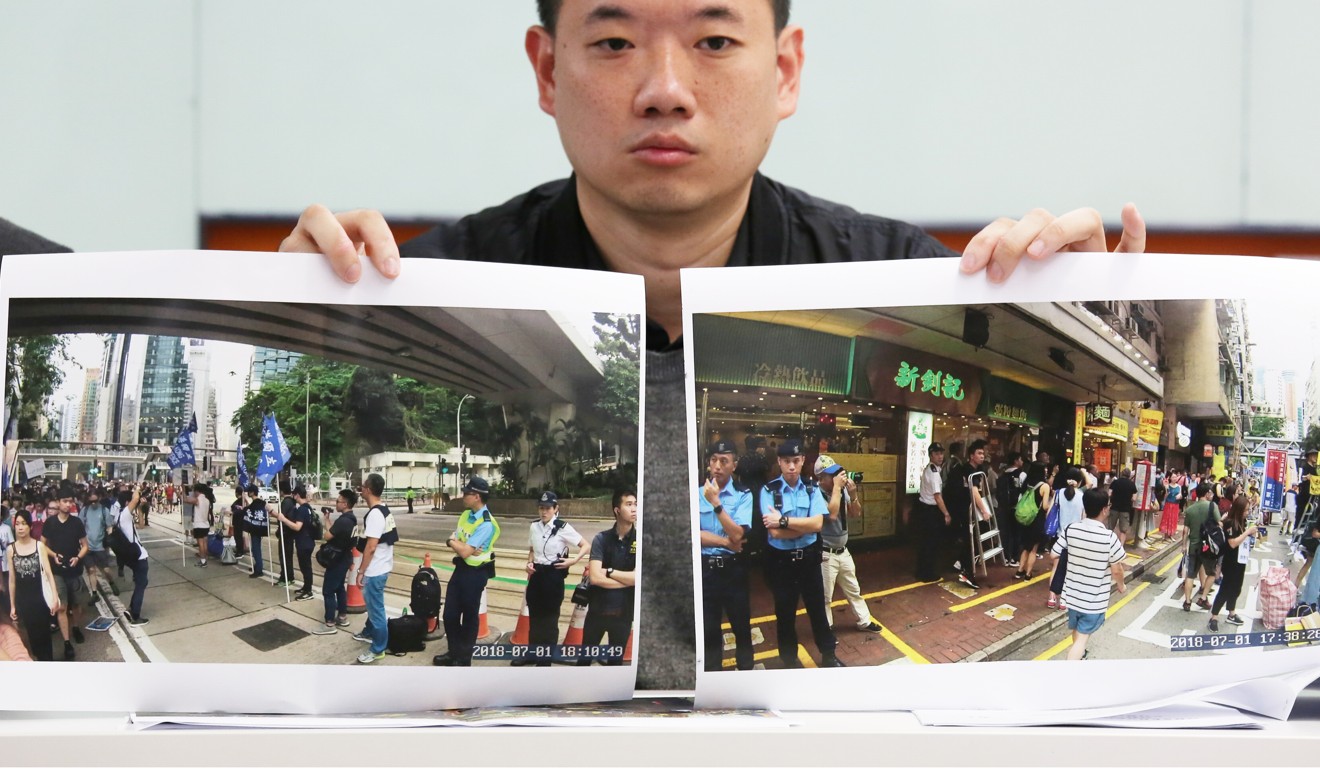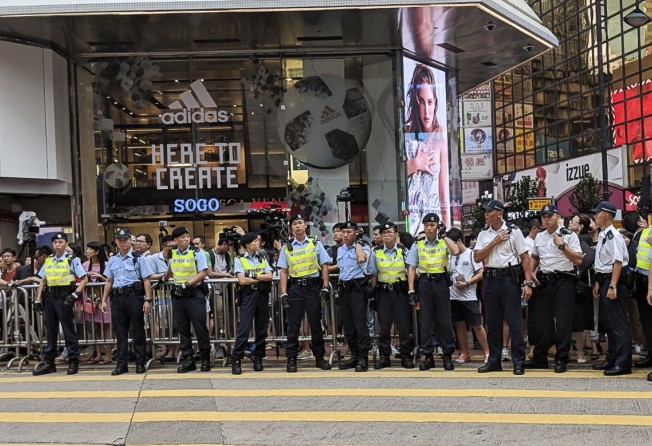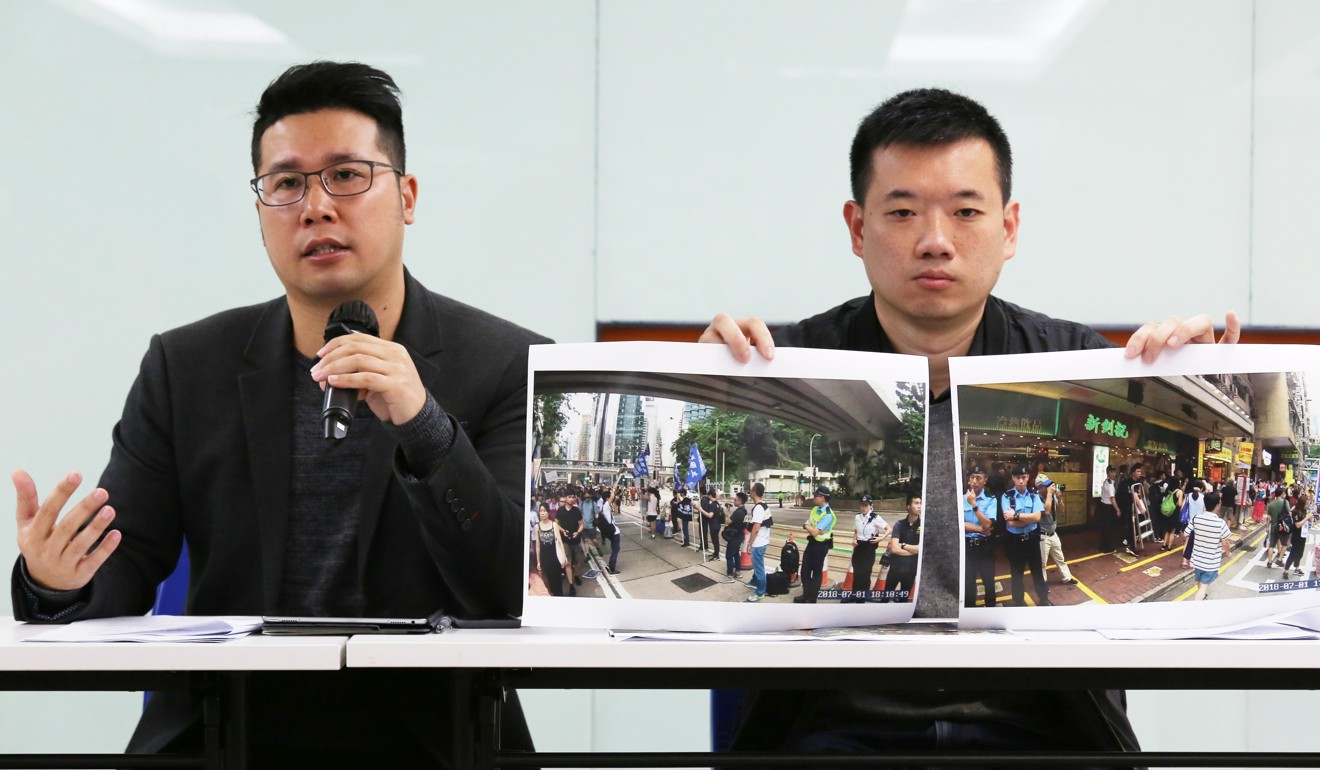
Hong Kong police broke with protocol on body cameras at protests, rights group says
- Civil Rights Observer says four plain-clothes officers followed and filmed two protesters holding a British colonial-era flag at July 1 march, despite the pair posing no threat

A human rights group has accused Hong Kong police of breaking with protocol on the use of body-worn cameras during two protest marches in July and October.
Civil Rights Observer published its first report on Sunday after training volunteers to monitor interaction between officers and demonstrators.
The group sent 12 observers to the city’s annual July 1 march at which organisers this year estimated the crowd numbered 50,000.
Three volunteers also monitored the October 1 National Day march that drew about 1,500 protesters.
The observers said they saw police filming peaceful demonstrators on both occasions. However, a 2015 report by the Independent Police Complaints Council (IPCC) says recording should only be carried out for crime detection and for reviewing how events are policed.

At the July 1 event the group says it saw four plain-clothes officers following and filming two protesters holding a Hong Kong colonial-era flag for 39 minutes in Wan Chai.
“These two demonstrators did not conduct any acts that were not peaceful or which may have been illegal,” the rights report said.
The volunteers also saw police recording two marchers who gave political speeches that day.
On October 1 the observers witnessed seven officers filming peaceful marchers in Causeway Bay.
Icarus Wong Ho-yin said the 2015 IPCC report stipulated the subject of video recordings should normally be an event as a whole, and that individuals became the subject “only when there is a breach of the peace”.
“But in reality, the police do not behave like that,” he said.
Videoing rallies may deter people from joining, Wong added.
“A protester might think: ‘Will they come after me later? Why are the officers filming me?’ Subjectively speaking, it makes protesters feel threatened.”

Fellow Civil Rights Observer member Andrew Shum Wai-nam said it was not uncommon for democracy activists to become the target of police.
“If a protester is expressing his or her views in a peaceful manner … I don’t see the need for such monitoring,” Shum said.
His organisation urged the force to publish in full its protocol for filming with body-worn cameras, since the 2015 report had only partially disclosed details, they said. Police were also told to reveal how they handle the video footage they capture.
The protocol states video should be destroyed within three months unless required for investigations or as evidence in court.
Wong said the rights group would file a complaint with the Complaints Against Police Office in the near future about the July 1 cases.
The reports on the marches would be sent to police, the IPCC and the legislature’s security panel, he added.